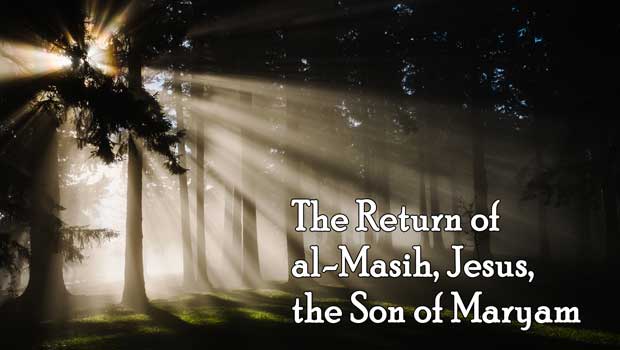So often, women’s rights in Islam are misconstrued. From the ignorant shouts of “Islam oppresses women!” to the never-ending spiral of questions like, “Are you forced to wear that?” — it has never been easy to be a Muslim girl in America, especially if she wears hijab. Non-Muslims never associate feminism with Islam. However, so much of the Islamic teachings about women focus on securing their social, political, and economic rights. There are many schools of thought in Western feminism; however, at the core of all of them is the quest to secure women’s human and civil rights.
Feminism, mainly, is not a movement of women wanting to declare their superiority to men or to promote diminishment of men. For a Muslim who advocates for the rights of women, it should not be the intention to see men and women as equal, meaning “the same” in their inherent characteristics and nature. Women have various strengths and weaknesses and so do men. However, that does not mean that either gender is superior or inferior to the other. Allah SWT created men with primary traits that serve their role as maintainer and protector of the family; and He created women with primary traits that serve their role as nurturer and, ideally, progenitor of God-conscious and virtuous children. That in no way precludes a man from being nurturing and compassionate or a woman from being tenacious and strong. In fact, for far too long, women have been labeled as “weak,” “too emotional,” “incapable,” or “too bossy.” The fact that men, in their predisposition, are logic-oriented and woman, in their predisposition, are heart-oriented, creates a perfect balance. And mind and heart are both revered in Islam, and both are absolutely necessary for both genders, for understanding and faith (heart — see, for example, Qur’an 26:87-89, 22:46, 3:8; mind — see, for example, 29:35, 23:80, 8:22).
During pre-Islamic Arabia, women were given little rights and were often dehumanized. They were accorded scant respect, had little to no legal protections, and often faced oppression. The beginning of the 7th century marked the beginning of Islam and a new outlook on women. One writer, Jim Garrison, in a HUFFPOST opinion piece, noted that with the advent of Islam, “Women in the 7th century Arabia had rights not extended to most women in the West till recent centuries over 1000 years later.”
Dignity, Worth, and Life Itself
The brutal practice of female infanticide, also called “gendercide,” was common during the pre-Islamic era. Killing infant girls by burying them alive was a cultural norm. There was a lot of anti-female bias among the people at the time, favoring sons and seeing a female newborn as an economic liability and burden, and socially undesirable, even a disgrace. “When one of them is given the good news of a female child, his face becomes dark, and he is filled with inward grief. He hides himself from the people because of the evil of these tidings. Should he keep it in humiliation or bury it in the dust? Verily, evil is what they decide” (Qur’an 16:58-59).
While men and women are not the same, they are equal in the sight of God. Allah SWT tell us, “To whoever, male or female, does good deeds and has faith, We shall give a good life and reward them according to the best of their actions” (Qur’an 16:97). And we are advised as to what the only true superiority is: “Indeed, the most noble of you in the sight of Allah, is the most righteous of you…” (49:13).
Marriage
A woman once came to the Prophet (s) and told him that her father had forced her to marry his nephew. The woman had been given no opportunity to consent or reject this marriage. The Prophet (s) responded to this by annulling the marriage. During the pre-Islamic era, the consent of a woman to a marriage was perceived as irrelevant. The oppressive cultural norm of arranged marriage without the woman’s consent prevailed until the advent of Islam. In Islam, there is a marriage contract which is integral to the legality and sanctity of a marriage. Both the bride and groom must give consent, both verbally and by signing the contract. Islamically, consent is a key requirement for a marriage to take place, and women have the freedom to choose their husbands.
In addition to the contract, there is also a mandatory dowry (mahr) that the groom gives to the bride. The mahr specifics are included in the marriage contract. The mahr is a certain amount of wealth or property the husband gives to his wife after the nikah marriage). Some examples of mahr are pieces of gold, jewelry, cash, or other gifts, according to the financial capability of the groom. The mahr becomes the bride’s own possessions, for her to save or utilize as she pleases. In the Qur’an, Allah SWT says, “And give the women their dowry graciously. . .” (Quran 4:4).
In pre-Islamic Arabia, women were often dehumanized and treated as property and accorded little respect by men and, particularly, by husbands. The Qur’an and Prophet Muhammad’s teachings, on the other hand, express the importance of respect and kindness towards wives. Prophet Muhammad (s) said, “The believers who show the most perfect faith are those who have the best behavior, and the best of you are those who are the best to their wives.” Unlike the cultural norms and social stigmas at the time, Prophet Muhammad (s) always showed love and respect towards his wives, was affectionate with the children, and helped out with household chores. Although Islam recommends many guidelines to keep a marriage strong and loving, divorce is allowed. Muslim women are given the right to initiate divorce. In that case, however, they are required to return the mahr to the husband unless he allows her to keep it. If a man initiates the divorce, the woman has the right to keep the mahr.
Inheritance
The rights of inheritance were revealed in the Qur’an more than 1,400 years ago. Women were also guaranteed the right to own, manage, and dispose of property. Women in the U.S. were given these rights centuries later. According to an article in The Guardian, in 1848 the “Married Woman’s Property Act” is passed in New York. It is later used as a model for other states, all of which pass their own versions by 1900. For the first time, a woman wasn’t automatically liable for her husband’s debts; she could enter contracts on her own; she could collect rents or receive an inheritance in her own right; she could file a lawsuit on her own behalf. She became for economic purposes, an individual, as if she were still single.” According to stepfeed.com, Islam was the first religion to give women inheritance rights.
Education
Prophet Muhammad (s) said, “The seeking of knowledge is obligatory for every Muslim.” This advice was directed to both men and women. After Islam spread in Arabia and the Prophet’s message on the importance of seeking knowledge was known, many female scholars rose to prominence in the early years of Islam. In “Al-Muhaddithat: The Women Scholars in Islam” by Mohammad Akram Nadwi, the author writes the following:
A striking case is that of Amrah bint Abd al-Rahmān, the great tabi’iyyah (Successor), muhaddithah [expert in ahadith] and faqīhah [expert in Islamic law], who intervened in a court case in Madinah to prevent a miscarriage of justice. It is remarkable enough that she knew that the case was in progress and the circumstances of it and what sentence the qādī [judge] had passed but not yet carried out. Many famous men jurists were residents and active in the city; none of them intervened. What is astonishing is that she did intervene, and no one questioned her right to do so. The defendant was a non-Muslim, not known to Amrah except as the defendant in this suit, in which she had no personal, private interest. The qãdi reversed his decision and released the defendant only because he could have no argument against the authority of the hadith she was able to cite. He did not know or remember it, or simply failed to bring it to bear when reaching his judgment. Once he knew the hadith, he did as a Muslim should – he acted upon it.
There are numerous examples of female Muslim scholars throughout Islamic history who were highly respected and sought after as teachers.
A Muslim woman, Fatima al-Fihri, founded a mosque in Fes, Morocco in 859 CE. Al-Qarawiyyin, as it was called, served as a place of instruction on religious and spiritual matters and later became a leading educational center. It still operates today and is part of Morocco’s university system. UNESCO calls al-Qarawiyyin the oldest continually operating higher learning institution in the world.
The first revelation to Muhammad began with “Read…” The Qur’an, in numerous verses, calls for believers, men and women, to think, to reason, to reflect. Many verses tell us to look for lessons in nature, in history, and in the capacities, as well as the limitations, of the human being. Believers are also encouraged to cultivate wisdom and good judgement. All of these injunctions point to the importance of seeking knowledge and education, for both women and men.
The Wrap
Islam confers on women a high status and respect and provides for their human and civil rights. Many Muslim-majority countries today still restrict the rights of women. It is, however, up to women to know their rights and never be afraid to speak up when their Islamic rights are diminished.






